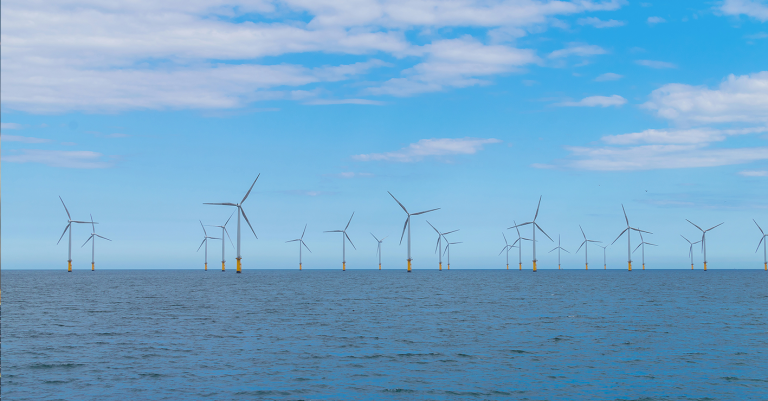The Romanian antitrust watchdog – Competition Council ("RCC") has recently issued a press release announcing fines of around EUR 37 million to 11 major players in the energy sector. The parties involved are on the one hand, Hidroelectrica SA, the largest state-owned energy producer, and 10 energy traders/eligible consumers who have concluded long-term electricity sale purchase agreements from 2004 to 2018 ("PPAs"). Most of the respective PPAs have already been annulled in the context of insolvency procedures of Hidroelectrica SA.
While the measure may satisfy blood thirst of a large part of the public – the electricity traders are known for years to the Romanian public under the ‘energy smart guys’ moniker earned for the shady context they managed to conclude lucrative deals with Hidroelectrica – the content of the press release gives however rise to questions as to standard of legal proof used by the authority in finding an anticompetitive infringement. The RCC apparently sanctioned all companies for vertical anticompetitive agreements and only three (3) of them for colliding in the context of negotiation and conclusion of the PPAs with Hidroelectrica. While the cartel component of the case is virtual inaccessible for public scrutiny until release of the non-confidential version of the decision, the first leg of the investigation, with respect to which the press release offers more insight, raises questions. Maybe is just a defect of the press release which will hopefully be solved with the publication of the non-confidential decision, but, at this stage of information, the findings of the RCC seem to focus on the non-lucrative impact of the PPAs from Hidroelectrica’s perspective rather than on actual anticompetitive findings required to establish such an infringement.
The few arguments available in the press release allude heavily to the voracity and immorality of traders in seeking profit on Hidroelectrica’s expense: thus, Hidroelectrica’s contractors knew that the quantities contracted were larger than Hidroelectrica’s production capacity and that in case of a difficult hydrologic context the company could not produce the electricity itself, but were to buy it from other sources. Why would that be a competitive infringement is difficult to tackle. Other arguments match rather a finding of abuse of dominance on Hidroelectrica’s side than of a vertical anticompetitive agreement: Hidroelectrica did not follow an objective and transparent selection process and did not honour other approx.. 450 requests for supply of electricity from others. Again, this fits rather an infringement by Hidroelectrica’s side and not a vertical infringement case. Further, RCC surprisingly invokes that the PPAs were concluded at prices below those on the Centralised Market for Electricity Bilateral Contracts (PCCB) and Day-Ahead Market (PZU). These arguments come again as a surprise since the European Commission, in charge with review of the alleged state aid component of the said PPAs, no later than last year found that "the contracts were concluded on market terms (…). In particular, the analysis revealed that Hidroelectrica charged prices that were fully in line with the benchmark market price to nine customers (ArcelorMittal, Alro, Alpiq RomEnergie, Alpiq RomIndustries, EFT, Electrica, Electromagnetica, Energy Holding, Euro-Pec)." So why does the RCC makes it its business to sanction conclusion of agreements at low prices which are not however state aid? Was the RCC worried that not everybody on the market had access to Hidroelectrica which sold electricity at low market prices in comparison to others? But this is not a competition authority job. The authority is called to watch over competition on the market and not for the welfare of each competitor. If there were no abuse of dominance concerns, the truth is that equality for all suppliers does not apply. This is how the market forces work, some get better deals than others. And if there was something illegal in the way the smart energy guys contracted with Hidroelectrica, it is for the criminal investigation bodies and the Energy Regulatory Authority (ANRE) to watch over.
Finally and more plausibly from a competition law perspective, the RCC states that the vertical agreements concluded by Hidroelectrica and some of the electricity traders/eligible consumers on the electricity wholesale market lead to market foreclosure for other suppliers and/or electricity producers/eligible consumers. If we deciphered correctly the press release, the main reproach brought by the authority is that Hidroelectrica offered electricity at low prices to the energy smart guys and locked 42-60% of the electricity on the competitive market for a period of 10-14 years thus depriving others of access to such a cheap source of energy. Ultimately, according to RCC, this reflected in higher consumer prices since this cheap electricity source was not available to the regulated market.
However, this argumentation also seems far-fetched. With Hidroelectrica’s market share on the production market (usually below 30%) and with each of the traders/end users involved having had a market share of 5% at most on their respective markets, each vertical supply agreements should have benefited of the vertical block exemption, to the extent it was indeed restrictive of competition. There is no mention of vertical hard-core restriction to exclude such benefit. Lets’ assume that no benefit of the block exemption regulation applied. The RCC’s concerns seemed focused on access to the upstream electricity production market than on the downstream market, the usual playfield for vertical restrictions. But no later than 2015 however, the RCC report on the electricity sector found a large number of suppliers – 159 – whereas the market concentration index HHI varied between 660 to 570, showing a low market concentration. So, what were then the grounds for foreclosure of the supply market given the relative large number of suppliers involved, the low concentration indices and homogeneity of the product? Also, there could have been no exclusive supply agreement, locking at least 80% of Hidroelectrica’s capacity, since there were so many traders having contracted with Hidroelectrica. Does this mean that the RCC has now set a limit from which a certain volume of supply locked with a supplier is deemed restrictive of competition? What is that threshold and how will this impact other areas of trade?
The description of the infringement found by the RCC fits something more like a collective guilt. Competition legislation addresses indeed issues arising from the parallel networks effect – situation in which over 50% of the market would be locked by the same restriction – but this situation should not lead to fines; to remedy such market dysfunction, it were for the RCC itself to temporarily lift the benefit of the vertical block exemption regulation for the entire market, not with respect to particular undertakings.
The RCC complains that the respective agreements deprived the regulated segment of the market of a cheap source of electricity. This construction suggests that the RCC was willing to fragment the market definitions to the extent it finally found a negative effect. But it is not consistent. On the one hand it complains of market foreclosure on the competitive segment and, on the other, of deprivation of the regulated segment of a cheap source of supply. But which way is it? If more cheap electricity were to go the regulated segment – absent the problematic agreements – wouldn’t there have been an even higher degree of foreclosure on the competitive market? Or the other way around? Wasn’t ANRE itself the one who deprived the competitive segment of a cheap source of electricity it dedicated to the regulated market? The situation with the regulated market was created by ANRE and was acknowledged by the RCC itself as a market distortion in the report on the electricity market. Should we remind ourselves that the Final Report of the Sector Inquiry by the European Commission found that it is actual the setting of regulated end user tariffs below market prices, which is discouraging new entry on the market?
One step further: admitting that the PPAs were indeed restrictive of competition. Weren’t there any grounds for individual exemption? In its Final Report of the Sector Inquiry, the European Commission acknowledged that long-term contracts may be legitimated in upstream gas markets considering the scale of investments required. Similar considerations should have applied in the energy sector. Various publications by the Commission admit that long-term PPAs provide cash flow certainty and stability which can help generation companies to secure project financing.
The truth is that the RCC approach takes a 180 degree twist from the other competition authority practice. The type of infringements alleged by the RCC – long term PPAs – has long been in the public eye of the competition authorities around EU. Long term PPAs were found anticompetitive but on grounds of abuse of dominant position. The European Commission condemned exploitative abuses by dominant incumbents and not the other way around. In abuse of dominance cases the European Commission closed investigations with commitments by the incumbent electricity or gas producer, no fines being applied.
For example, in 2007, the Belgian incumbent national supplier, Distrigas was suspected of foreclosing the market to other suppliers given the duration of the contracts and the volumes of gas tied to with large gas customers in Belgium. The Commission was concerned that other suppliers find it difficult to do business with Belgian customers. The case was closed with commitments from Distrigas’ side. No fines for Distrigas’ partners.
In 2008, the Commission investigated E.ON’s suspected abuse of its dominant position on the German wholesale market by withdrawing available generation capacity from the German wholesale electricity markets in order to raise prices, and deterring new investors from entering the generation market. The case was closed with commitments from E.ON’s side. No fines for its partners.
In 2010, the Commission closed an investigation on France’s EDF, the incumbent operator for the supply of electricity to large industrial customers on the French market. The Commission was concerned that long-term agreements concluded by EDF could have significantly hindered other undertakings from concluding contracts for the supply of electricity to large industrial customers in France. The case was closed with commitments on EDF side. Most notably, speaking of what foreclosure means, EDF was allowed to early terminate commitments should its market share fall below 40% for two consecutive years. Hidroelectrica’s market share did not even reach 40%!
No matter how we twist the wording of the press release, the argumentation of the RCC in finding a vertical infringement seems feeble. The authority is rightfully credited with a high degree of public confidence being, together with the anti-corruption agency, the most active prosecuting bodies in tackling high-profile cases. Given the heavy weight associated with an antitrust infringement, it is however of utmost importance that the authority also preserves its credibility as an observant of the legal standard of proof and presumption of innocence. The information made available by the RCC with respect to a vertical infringement in this case allude however to sanctioning of the traders/end-users on moral grounds rather than based on an objective and in-depth competitive analysis of the PPAs. Maybe it was just a matter of PR since the press releases have to offer information catchy to the public eye. Hopefully this is just a tempest in a teacup which will be cleared once the decision is rendered public.
This article was also published on Lexology. For more details, click here.




